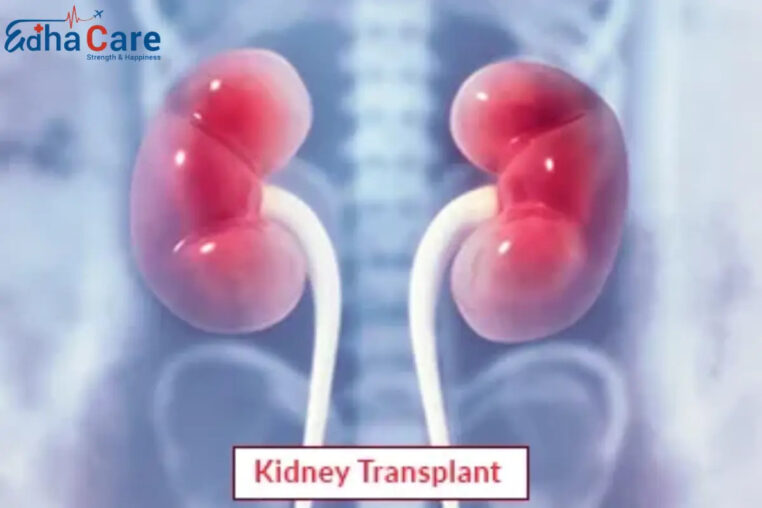Kidney failure is a condition that affects not just the body, but every aspect of a person’s life. For those living with end-stage renal disease (ESRD), dialysis may offer temporary relief — but a kidney transplant can provide a long-term, life-changing solution. With cutting-edge medical infrastructure, globally trained specialists, and remarkably affordable care, Kidney Transplant Surgery in India has emerged as a top choice for patients from around the world.
What is Kidney Transplant Surgery?
A kidney transplant is a surgical procedure where a healthy kidney from a donor (either living or deceased) is implanted into a patient whose own kidneys have failed to function. The new kidney is usually placed in the lower abdomen and connected to the recipient’s blood vessels and bladder, restoring the body’s ability to filter waste and maintain fluid and electrolyte balance.
This procedure not only enhances quality of life but also increases life expectancy compared to long-term dialysis.
Types of Kidney Transplant Surgery
India offers advanced options when it comes to different types of kidney transplants:
-
Living Donor Transplant: A kidney is donated by a healthy individual, usually a family member or close relative. This option often has a higher success rate.
-
Deceased Donor Transplant: The kidney is donated by someone who has passed away and previously registered as an organ donor.
-
ABO Incompatible Transplants: With modern techniques, transplants across different blood groups are now possible in select cases.
Each of these methods is available in top Indian hospitals that specialize in renal transplant procedures.
Pre-Transplant Evaluation & Surgical Planning
Before undergoing surgery, patients must go through a thorough evaluation process, including:
-
Medical history review and physical exam
-
Blood and urine tests
-
Imaging (ultrasound, CT scans)
-
Heart, lung, and liver function tests
-
Compatibility testing (HLA typing, crossmatch)
-
Cancer screenings and psychological assessment
These tests ensure both the donor and recipient are healthy and compatible, minimizing the risk of complications post-surgery.
The Kidney Transplant Procedure: Step-by-Step
-
General Anesthesia is administered to keep the patient unconscious during surgery.
-
Surgical Incision is made in the lower abdomen.
-
The donor kidney is placed into the pelvic region.
-
The kidney’s blood vessels are connected to the recipient’s iliac vessels.
-
The ureter (urine tube) is attached to the bladder.
-
The incision is closed and a drain may be placed to reduce swelling.
The entire procedure typically takes 3–4 hours, followed by post-operative observation in a specialized ICU.
What to Expect After Kidney Transplant Surgery
-
Hospital Stay: Around 5 to 7 days
-
Initial Monitoring: Regular blood tests and imaging to check for signs of rejection or infection
-
Medication: Patients are prescribed immunosuppressants to prevent organ rejection
-
Follow-up Visits: Frequent checkups during the first few months after surgery
-
Recovery Timeline: Light activity after 3–4 weeks, full recovery in about 8 weeks
Patients are advised to maintain a healthy diet, follow medication schedules strictly, and practice good hygiene to avoid infections.
Long-Term Care and Lifestyle Changes
After a successful kidney transplant, patients need to make certain lifestyle changes for long-term success:
-
Adherence to anti-rejection medication
-
Regular doctor consultations
-
A balanced diet, low in sodium and sugar
-
Moderate exercise
-
Avoiding infections and staying hydrated
-
Mental wellness support and emotional care
With proper post-operative care, many kidney transplant recipients go on to lead healthy, active lives.
Success Rate of Kidney Transplant Surgery in India
Thanks to medical excellence and skilled surgical teams, India boasts some of the highest kidney transplant success rates in the world:
-
Living Donor Transplants: 90–95% success rate
-
Deceased Donor Transplants: 85–90% success rate
-
Average Kidney Lifespan: 15–25 years depending on donor type and post-care
Cost of Kidney Transplant Surgery in India
The cost of kidney transplant surgery in India varies based on several factors, including the hospital, the surgeon’s expertise, the type of transplant, and the city where the procedure is performed. Additionally, the overall expenses can differ depending on whether it’s a living donor transplant or a deceased donor transplant. Depending on the type, the cost of kidney transplant surgery in India varies from USD 11,000 to USD 15,000. India boasts top-notch medical facilities and highly experienced transplant surgeons, offering cost-effective treatment options compared to many other countries. With a combination of advanced technology and competitive pricing, India has become a preferred destination for kidney transplants.
Why Choose India for Kidney Transplant?
-
Internationally Accredited Hospitals (NABH, JCI)
-
World-Renowned Nephrologists and Surgeons
-
Affordable Cost Without Compromising Quality
-
Minimal Waiting Time for Surgery
-
Medical Tourism Support: Visa assistance, translator services, and post-discharge coordination
Whether you’re from the Middle East, Africa, the US, or Europe, India welcomes you with open arms and exceptional care.
Final Thoughts
Kidney Transplant Surgery in India offers a beacon of hope to patients suffering from chronic kidney failure. With its excellent healthcare facilities and a track record of success, India stands out as a top destination for organ transplantation. Combined with the affordable cost of kidney transplant surgery in India, patients can expect high-quality treatment and a second chance at life — without financial strain.
If you or a loved one is exploring kidney transplant options, consider India not just as a destination for surgery, but as a destination for healing, recovery, and hope.





